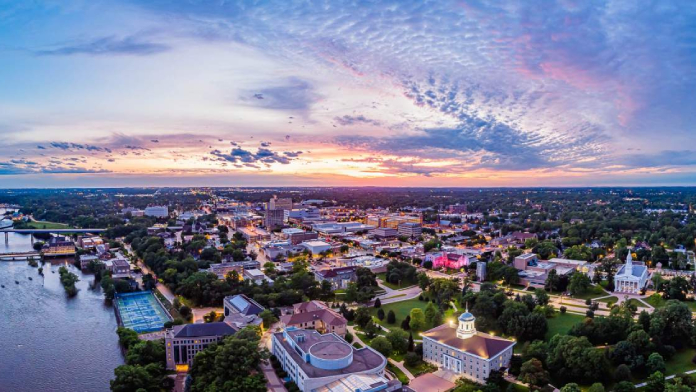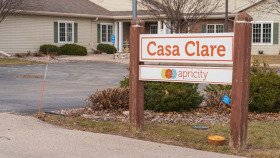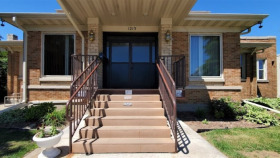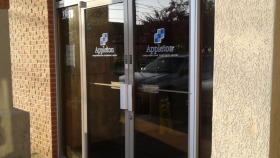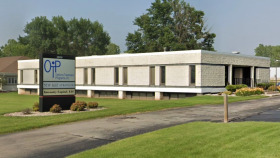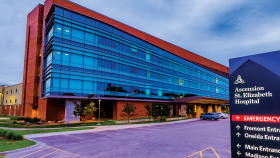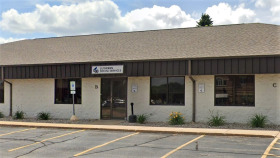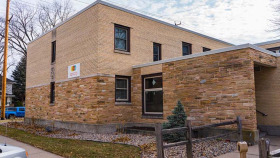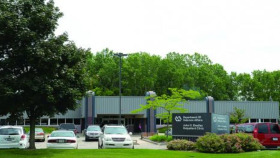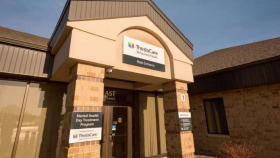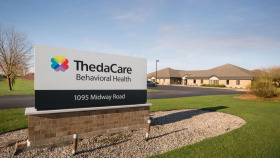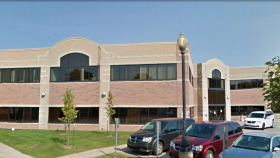Substance Abuse Statistics in Appleton, WI
According to the latest Outagamie County Community Health Survey Report, 9% of country residents report being heavy drinkers in the last month, which is at least 31 drinks for women or 61 for men. 2 Other statistics for Outagamie County alcohol and drug use include the following:3,4
12% of county high school students misuse prescription drugs
8% of drug-related deaths were due to opioids
11% of emergency room visits were due to opioids
Out of all alcohol-related deaths in Outagamie County in 2019, over 60% were American Indian, 65% male, and 80% were over 65.4 The good news is, there are more than 20 drug rehabs in Appleton that provide inpatient and outpatient treatments such as individual, group, and family therapy.5
Levels of Care for Addiction Treatment Settings
There are various levels of addiction treatment, ranging in intensiveness and frequency of care. The right level for you depends on the length and severity of your addiction, your mental and physical health, your support system, and more.
Detoxification
Drug and alcohol detox is a controlled and supervised setting in which your body gets rid of addictive substances. Detox can occur in several settings, including outpatient and inpatient environments. Some are medically managed, which means doctors and nurses provide medications and medical care round-the-clock. Certain drugs, such as alcohol, benzodiazepines, and opioids, have particularly distressing and even dangerous withdrawal symptoms, so these drugs often necessitate detox.
Inpatient Care
Inpatient or residential drug rehab is the most intensive addiction treatment setting, providing 24/7 care, supervision, and monitoring. You live at the facility for the duration of the treatment program, which may last 30, 60, or 90 days. This setting may be best for someone with a severe addiction, polysubstance addiction, or co-occurring mental health disorder, like PTSD or depression.
Partial Hospitalization Programs (PHPs)
PHPs provide a high level of care while allowing you to live at home during the program. You go to the clinic every day for several hours per day but return home during non-treatment hours. It’s a great option for step-down care after completing an inpatient program or as an initial treatment program for someone who can’t necessarily go to inpatient care due to obligations.
Intensive Outpatient Programs (IOPs)
A step down from PHP, an IOP includes several hours of therapy for a few days per week. This option may be beneficial if you have a mild addiction and a strong support system. It may also be used as step-down care after completing inpatient or PHP.
Standard Outpatient
If you choose standard outpatient treatment, you attend therapy one to two days per week for one or two hours per session. Many people make their way through the continuum of care by first completing inpatient or an intensive outpatient program before stepping down to standard outpatient.
Aftercare
Once you’ve completed an addiction treatment program, you will want to continue receiving ongoing support, known as aftercare. You can collaborate with your treatment team on creating an aftercare plan that addresses your needs and preferences. Some people transition into a sober living home while others may join a support group, attending therapy, or all of the above.
How to Pay for Drug Rehab in Wisconsin
Cost shouldn’t be a barrier to quality addiction treatment. There are many ways to finance drug rehab so that you can get the help you need.
Use Private Health Insurance
If you have private health insurance through work or the Healthcare Marketplace, you can use your plan to at least partially, if not fully, cover substance abuse treatment services. Every plan is different—some fully cover inpatient rehab for a certain period while others may only partially cover residential. Make sure to call your provider to learn more. And once you know what your insurance provider will pay, make sure to find a rehab that is in-network with your provider.
BadgerCare (Wisconsin Medicaid)
BadgerCare is Wisconsin’s Medicaid program for low-income people, families, and pregnant individuals who don’t have access to private health insurance. BadgerCare covers drug and alcohol rehab in Wisconsin, including inpatient, outpatient, medication-assisted treatment, assessments, and beyond. Not every treatment facility accepts Medicaid, though, so you’ll want to do your research before committing to one.
Medicare
Medicare is a government program providing health insurance coverage to Wisconsin residents aged 65 and older or those with certain disabilities or health conditions. Like BadgerCare, Medicare covers substance abuse treatment services, such as outpatient rehab, residential treatment, and addiction treatment medications.
TRICARE in Wisconsin
TRICARE provides health insurance coverage for veterans, active-duty military personnel, and their families, and it covers much-needed drug rehab and alcohol rehab services as well as mental health treatment.
Sliding Scale Rehabs
Sliding scale rehabs are able to offer treatment at discounted rates depending on a person’s income, meaning that they only charge you what you are reasonably able to pay. This can greatly reduce the financial burden of drug rehab and enable you to seek the treatment you need to recover from addiction.
IHS-Funded Drug Rehabs
Some drug and alcohol rehabs receive funding from the Indian Health Service, which is a federal health program for Indigenous people in the U.S., including Alaskan Natives. These rehabs offer no-cost addiction treatment to Native Americans, whether they already have health insurance or not. However, the majority of IHS-funded drug rehabs are located on reservations, which may make it difficult for Indigenous folks in cities to access them.
Is it Easy to Travel To and From Appleton, WI?
 Appleton is the heart of Outagamie County and is best known for Lawrence University, which attracts students worldwide. Celebrities like Harry Houdini and author Edna Ferber are from Appleton.
Appleton is the heart of Outagamie County and is best known for Lawrence University, which attracts students worldwide. Celebrities like Harry Houdini and author Edna Ferber are from Appleton.
Whether you plan to enter rehab, detox, or visit a loved one in an Appleton drug rehab, the following options make traveling simple:6
- The Appleton International Airport offers daily flights to at least eight major cities.
- Car rental is available at the airport or in Appleton.
- Amtrak Thruway Service Connection offers bus routes to nearby airports and cities.
- Uber, Lyft, and taxi services are available in the Fox Cities.
- Free Trolley system for getting around Downtown Appleton.
If you are looking for a place to stay, the following options are available in the 19 communities in the area:6
- Air BnB or VRBO
- More than 30 hotels, motels, and Inns in the Fox Cities, 11 in Appleton
- 3,500 lodging rooms from walkable downtown locations
When you are not receiving services at an Appleton drug rehab, there are many fun things to do that support recovery, such as:6
- More than 70 boutiques and specialty stores
- More than 70 culturally diverse eateries
- More than 20 live music venues
- More than 10 attractions and museums
Alcohol and Drug Laws in Wisconsin
Alcohol and Drug Laws in Wisconsin:1,2
Wisconsin Naloxone Access and Administration Law: Residents of Wisconsin can obtain naloxone (Narcan) without a prescription and they can also administer it to an overdosing person once they’ve had proper training.
Wisconsin State Good Samaritan Law Amendment: Bystanders in possession of drugs can call 911 to help someone who is overdosing without the risk of being arrested and prosecuted for possession.
Resources
- Wisconsin Department of Health Services. 2022. Dose of Reality: Opioid Deaths by County Dashboard.
- Fox Valley Community Health Improvement Coalition. 2018. Outagamie County Community Health Survey Report.
- Wisconsin Department of Health Services. 2017. Wisconsin Public Health Profiles 2017 Outagamie County Profile.
- Outagamie County. 2021. Community Health Assessment.
- The Network of Care for Mental Health/ Behavioral Health. 2022. Find Agencies, Programs, or Facilities Near You.
- Fox Cities Greater Appleton, WI. 2022. Official Destination Guide.

